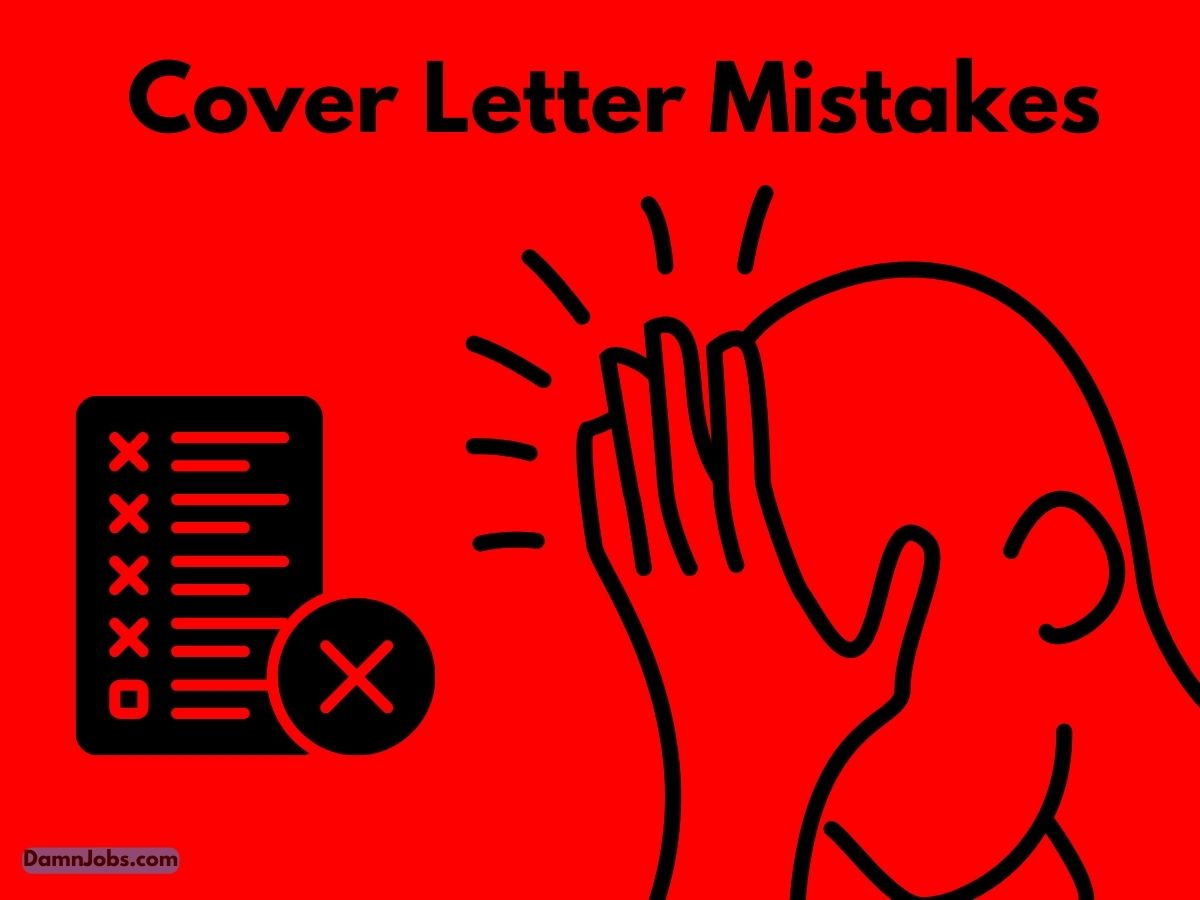Cover Letter Mistakes to Avoid
A cover letter is your chance to make a strong first impression, offering a glimpse into your personality and qualifications.
However, many job seekers make common mistakes that can overshadow their potential.
Avoiding these pitfalls can help ensure that your cover letter stands out for all the right reasons.
Here’s a guide to common cover letter mistakes and tips on how to avoid them.
1. Sending a Generic Cover Letter
Personalize Your Letter
One of the biggest mistakes is sending a generic cover letter that lacks personalization.
Tailoring your cover letter to the specific job and company demonstrates your genuine interest and effort.
Example:
Instead of saying, “I am applying for the position of Marketing Manager,” write, “I am excited about the opportunity to contribute to XYZ Company’s innovative marketing team as a Marketing Manager.”
Address the Hiring Manager by Name
Whenever possible, address your cover letter to a specific person.
Using “Dear Hiring Manager” or “To Whom It May Concern” can come across as impersonal and lazy.
Example:
- Preferred: “Dear Ms. Smith,”
- Less Preferred: “To Whom It May Concern,”
2. Repeating Your Resume
Add Unique Value
Your cover letter should complement, not duplicate, your resume.
Use it to highlight specific achievements, explain your career path, and show how your skills align with the job.
Example:
Instead of reiterating your job duties, focus on a significant accomplishment and how it relates to the role you’re applying for.
Example:
- Resume: “Managed a team of 10.”
- Cover Letter: “Led a team of 10 to successfully complete a $500,000 project three weeks ahead of schedule.”
3. Ignoring the Job Description
Highlight Relevant Skills
Pay close attention to the job description and align your cover letter with the key skills and qualifications mentioned.
Show how your experiences directly address the needs of the employer.
Example:
If the job requires “strong project management skills,” emphasize your relevant experience in managing projects and achieving successful outcomes.
Example:
- Job Description: “Requires strong leadership skills.”
- Cover Letter: “Utilized leadership skills to guide a cross-functional team through a challenging project, resulting in a 25% increase in efficiency.”
4. Focusing Too Much on Yourself
Show How You Can Benefit the Company
While it’s important to showcase your strengths, your cover letter should focus on how you can benefit the employer.
Highlight how your skills and experiences will help solve their problems or meet their needs.
Example:
Instead of stating, “I am a hard worker,” say, “I am eager to bring my project management skills to your team, ensuring that projects are completed on time and within budget.”
5. Using Clichés and Overused Phrases
Be Original and Authentic
Avoid overused phrases like “hardworking,” “team player,” and “out-of-the-box thinker.”
Instead, provide specific examples and stories that illustrate your qualifications and enthusiasm.
Example:
Instead of saying, “I am a go-getter,” describe a time when you took initiative and achieved a significant result.
Example:
- Cliché: “I am a team player.”
- Original: “Collaborated with a diverse team to develop a new marketing strategy, which led to a 15% increase in engagement.”
6. Neglecting Proofreading
Check for Errors
Spelling and grammatical errors can undermine your professionalism and attention to detail.
Always proofread your cover letter carefully or ask someone else to review it.
Example:
Common errors include typos, incorrect company names, and grammatical mistakes.
Use tools like Grammarly or ask a trusted friend to help with proofreading.
7. Making It Too Long
Keep It Concise
A cover letter should be concise and to the point. Aim for about 300-400 words, focusing on key achievements and how you can contribute to the company.
Example:
Instead of a lengthy, detailed account of every job you’ve had, select a few key experiences that highlight your suitability for the position.
Example:
- Too Long: A lengthy description of all past roles and tasks.
- Concise: A brief summary of relevant achievements and how they align with the job requirements.
8. Forgetting to Include a Call to Action
End with a Strong Closing
Finish your cover letter with a strong closing that includes a call to action.
Express your eagerness to discuss your application further and provide your contact information.
Example:
- Closing Statement: “I look forward to the opportunity to discuss how my skills and experiences align with your needs. Thank you for considering my application. I am available at (123) 456-7890 or via email at john.doe@example.com.”
9. Ignoring the Company Culture
Reflect the Company’s Values
Demonstrate that you understand and align with the company’s culture and values. Show how you would fit into their work environment and contribute positively.
Example:
If the company values innovation, mention how you have embraced innovative approaches in your previous roles.
Example:
- Company Culture: Innovation-focused.
- Cover Letter: “I am excited about XYZ Company’s commitment to innovation and look forward to bringing my creative problem-solving skills to your team.”
10. Submitting a Generic Template
Customize for Each Application
Avoid using a one-size-fits-all template. Customize your cover letter for each job application, addressing specific requirements and showcasing why you’re the best fit.
Example:
Tailor each cover letter to reflect the unique aspects of the job and company you are applying to.
Example:
- Generic: “I am writing to express my interest in the position.”
- Customized: “I am excited to apply for the Marketing Specialist role at XYZ Company, as I am impressed by your innovative campaigns and would love to contribute to your team.”
Conclusion
By avoiding these common cover letter mistakes, you can craft a compelling and effective cover letter that highlights your strengths and aligns with the needs of the employer.
Personalize your letter, focus on the company’s needs, and present yourself as a perfect fit for the role.
A well-written cover letter can make a significant difference in getting noticed and landing that crucial interview.

